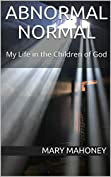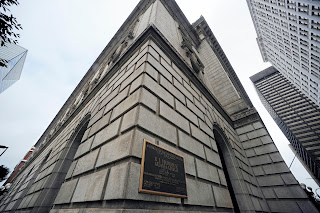"Roberta attended Sarah Lawrence College cult leader Larry Ray's sentencing hearing. "
" ... In an article in Religion and Ethics News Weekly written in 2001, Carl Bielefeldt, professor of Buddhist studies, observed: "We seem to be dealing not with a religion, but with something that might be called American 'secular spirituality.'" But Bielefeldt also recognized the danger that Buddhism could be "submerged in a spiritual soup in which the Asian religion of Buddhism has been so fully blended into American culture that we may no longer be able to speak of it either as 'Asian' or as 'religion.'"
What Bielefeldt could not foresee at the time was the possibility that when Buddhism was joined to Western science, it would generate its own clarity and become not a thing of infinite passion but a sort of cult, specifically a cult of expertise. The evidence for this cult is not hard to find. Take for example, Rick Hanson's most recent book, "Neurodharma: New Science, Ancient Wisdom, and Seven Practices of the Highest Happiness." (Hanson is a psychologist and a fellow at UC Berkeley's Greater Good Science Center.) The book begins with a formidable list of blurbs (eight pages in all) from some serious heavy hitters on the American Buddhist scene: Sharon Salzburg, Joseph Goldstein, Tara Brach, Jack Kornfield, Deepak Chopra. The people on this list are all credentialed. Nearly all of them are doctors of one kind or another, mostly PhDs and a few MDs, lots of psychologists and neuroscientists. Hanson, too, has a PhD in psychology, something he notes purposefully on the cover. I suppose that this is a way of saying, "You're in good hands. All the experts say so, and I'm an expert myself." As Spirit Rock Meditation teacher Jack Kornfield has concluded, confirming Bielefeldt's fears, "Buddhism is not a religion. It is a science of the mind."
Proudly foregrounding prestigious academic degrees is a symptom of the American cult of expertise, although Hanson's epic eight pages of Who's Who blurbs lead me to wonder if his isn't a cult of expertise Gone Wild! That wouldn't be anything new. The experts have been going wild for some time now — conspicuously wild since 1990, the year of the first TED talk (Technology, Entertainment, and Design), whose stage is the national shrine for this improbable cult.
Not in the least surprising, Hanson gave a TED talk in 2014 on meditation and happiness. He is not the only science guru to do so. Self-styled "mindfulness expert" Andy Puddicombe gave a TED talk, and so did a Buddhist Monk with a PhD in molecular genetics, Mathieu Ricard. There's an irony here. Hanson's TED talk is not only a presentation of "ideas worth spreading," as TED likes to say. It is also an exercise in not noticing, in inattention, the opposite of mindfulness. TED talks are exercises in not noticing how white the audience is, nor how well-heeled the audience is, nor how siloed these talks are from those who can't afford or have never heard of TED.
Extending this irony, the affluence of the TED crowd is a good part of what the Buddha meant by samsara, the world of craving, grasping, clinging, and consequent suffering. TED's congregation arrives "with a handful of gimme/and a mouth full of much obliged," as Taj Mahal sang. In short, the wealth displayed at TED talks is itself one cause of the suffering that TED's audience is hoping a neuro-Buddha can fix for them! Conflating Buddhism with a science of happiness creates a perpetuum mobile of self-inflicted dukkha, suffering. Its final meaning is, "I can be happy while keeping my wealth and a scientific worldview. I can be a Buddhist without actually having to change." From a properly Buddhist perspective, this is a delusion."
"There are two questions guiding the paper. The first, understanding TM as a social organization. The richness of the ethnographic data presented here both facilitates the classification of TM and illustrates the complex emic viewpoint in the TM movement. It is this last point in particular that is important for the main argument of the thesis — that of the relationship between the postcharismatic phase and schismogenesis — and one of the key points is incoherence in the perceptual paradigm."
InfoCult: Dianne Casoni Award
(Submission deadline: March 1, 2023.)
"Dianne Casoni was an important collaborator of Info-Cult for more than 25 years, in addition to sitting on its board of directors for more than a decade. She was a prominent figure in research in the field of religion and cultic phenomena. In particular, Professor Casoni analyzed different elements of engagement or participation within various groups with a high level of control. She has also worked on issues relating to the relationship between the leader(s) and followers. Likewise, Dianne was interested in the link between the different group ideologies and their structure. Throughout her career, she worked closely with people who have lived in such groups, to better understand their experiences. Dianne has also worked on issues related to terrorism and more broadly, radicalization. As an experienced psychologist and psychoanalyst, she taught for over twenty years in the School of Criminology at the Université de Montréal.
In order to honour the memory of Dianne and to highlight her important contributions to research, Info-Cult established the Dianne Casoni Award in 2020, with the support of her daughters.
This award aims to promote and reward written work which addresses one or more aspects of cultic phenomena. It consists of two categories :
• Scientific
• Popular
Award: For each category, the recipient will receive a plaque along with a $ 500 prize (CAD)."
News, Education, Intervention, Recovery
Intervention101.com to help families and friends understand and effectively respond to the complexity of a loved one's cult involvement.
CultRecovery101.com assists group members and their families make the sometimes difficult transition from coercion to renewed individual choice.
CultNEWS101.com news, links, resources.
Cults101.org resources about cults, cultic groups, abusive relationships, movements, religions, political organizations and related topics.
Selection of articles for CultNEWS101 does not mean that Patrick Ryan or Joseph Kelly agree with the content. We provide information from many points of view in order to promote dialogue.
Please forward articles that you think we should add to cultintervention@gmail.com.






